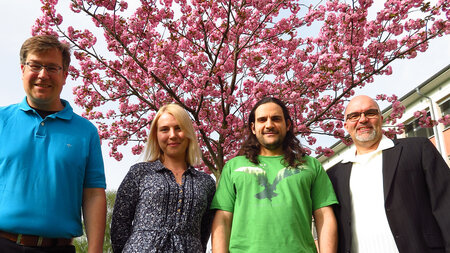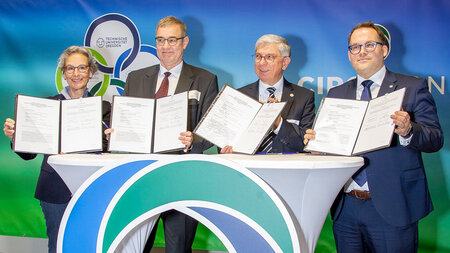School
In Germany, compulsory school attendance applies for children between the age of 6-15 years. At the same time, parents have got a claim for school placement of their children. In this respect, they have the chioce between governmental and private schools. The private schools generally charge fees but might be of special interest for parents coming from countries abroad in terms of International Schools which take intercultural aspects in consideration and where the language of teaching is often English.
In Germany, the legislation in education is decentralised which means that the education systems vary from state to state. In the Free State of Saxony, children from the age of three years on may join a preschool-facility. In contrast to (governmental) schools, they are not obligatory and charge fees whereas for children from the age of 6-15 years, compulsory school attendance applies:
- In the Free State of Saxony, children after school enrolment first go to an elementary school for 4 years. In the fourth school year, the parents get a recommendation for education with regard to an appropriate type of secondary school for their child: this may be the junior high school ("Mittelschule") on the one hand or the high school ("Gymnasium") on the other.
- The junior-high-school ("Mittelschule") includes in the Free State of Saxony the classes 5-10 and offers three kinds of diplomas:
- the lower secondary school diploma ("Hauptschulabschluss": after class 9)
- the qualifying lower secondary school diploma ("Qualifizierender Hauptschulabschluss": after class 9 and completed supplementary examination)
- the secondary school diploma ("Realschulabschluss": after class 10 and completed final examination)
- On demand of the parents and in case of appropriate performances of the pupil, a change between the particular types of diplomas is possible until class 9.
- the high school ("Gymnasium") includes the classes 5-12 and serves for the preparation for the high school graduation diploma ("Abitur") which is also the general requirement for university entrance in Germany.
The classes 5-6 within the secondary schools have got "orientation function" which means that according to the performances of the pupil, there is still the opportunity for a quite smooth change between the junior high school and the high school.
In contrary to the governmental schools, private schools often charge fees. Those can amount up to 800.00 Euro per month. Furthermore, parents should pay attention to check whether the diploma awarded by the private school is recognised as equal to the one of governmental schools. The advantage of private schools particularly for parents coming from a country abroad is the fact that there are International Schools which take intercultural aspects in consideration and where teaching is often held in a foreign language, normally English, which might facilitate their children in settling down.
You may find an opportunity to search for private schools in the Free State of Saxony here. For an overview of schools in Chemnitz please click here.
Students, PhD-students and staff members of Chemnitz University of Technology have the opportunity to address to the Family Service of the university in order to get support in searching for an appropriate school for their children in Chemnitz and surrounding as well as within their application for a place at a school.






